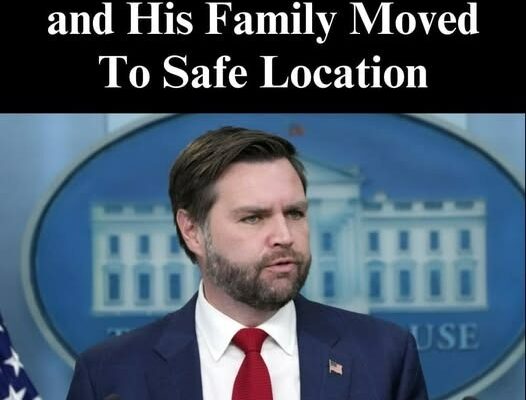Vice President J.D. Vance’s family was relocated to an undisclosed location for security reasons after a group of pro-Ukraine protesters gathered outside the Sugarbush Resort in Vermont, where the Vances were vacationing. The decision to move his family came amid rising tensions following a highly publicized Oval Office confrontation between President Donald Trump, Vance, Secretary of State Marco Rubio, and Ukrainian President Volodymyr Zelensky.
The protestors, many of whom carried Ukrainian flags and signs demanding continued U.S. support for Ukraine, were reportedly angered by the outcome of the recent White House meeting. The heated exchange between Zelensky and the American leadership had become a major point of contention, with critics accusing the Trump administration of attempting to strong-arm Ukraine into an economic deal while simultaneously pressuring Zelensky to negotiate a ceasefire with Russia.
During the Oval Office meeting, tensions escalated when Zelensky refused to sign a proposed economic agreement that would have granted the United States a greater stake in Ukraine’s mineral resources in exchange for continued financial and military support. Zelensky also made it clear that his country needed further military assistance, emphasizing the growing threats posed by Russian advances on the battlefield.
The discussion quickly turned contentious, with Trump and Vance expressing frustration over what they perceived as a lack of gratitude from Zelensky. At one point, Trump reportedly told the Ukrainian president, “Just say thank you,” emphasizing that the United States had already provided Ukraine with significant aid. The former reality TV star-turned-president also reminded Zelensky of the billions of dollars the U.S. had sent to Ukraine since the war began, including during Joe Biden’s administration.
Vance, who has been vocal about his skepticism regarding the ongoing financial support for Ukraine, took an even harder stance. He challenged Zelensky on whether Ukraine was truly in a position to demand additional aid without offering something in return. The vice president’s remarks fueled outrage among Ukrainian supporters, who saw them as an abandonment of a key ally in Eastern Europe. The meeting ended on an awkward note, with Zelensky leaving the White House earlier than expected.
The aftermath of the Oval Office clash was immediate. Social media erupted with fierce debates over U.S. foreign policy, and international leaders weighed in on the spectacle that had played out on the global stage. Meanwhile, back in Vermont, the Sugarbush Resort became the unexpected epicenter of political protests as demonstrators arrived to voice their anger at Vance’s stance.
Protesters were heard chanting slogans condemning the Trump administration’s treatment of Zelensky, with some carrying banners that read, “Ukraine deserves better” and “No deals with dictators.” Others accused Vance of being too willing to accommodate Russian interests, a claim that the vice president has repeatedly denied.
As the crowd outside the resort grew, security officials assessed the potential risks and ultimately decided to relocate Vance’s family to an undisclosed location for their safety. Local law enforcement worked in coordination with the Secret Service to ensure a smooth and discreet departure, avoiding any direct confrontations with demonstrators.
A spokesperson for the vice president’s office later released a brief statement confirming the relocation, stating, “Out of an abundance of caution, Vice President Vance’s family was moved to a secure location after protest activity increased near their vacation residence. The vice president remains committed to ensuring American foreign policy prioritizes U.S. national interests.”
Despite the evacuation, Vance remained firm in his position on Ukraine. Speaking to reporters later that day, he reiterated that the U.S. could not continue providing unlimited aid to Kyiv without clear strategic goals in place. “We support Ukraine’s sovereignty,” he said. “But we must also ensure that every dollar of American taxpayer money is being spent wisely. We cannot fund an endless war without accountability.”
The protests in Vermont, however, highlight the deep divisions in U.S. politics over Ukraine. While some argue that American support is essential to countering Russian aggression, others question whether continued aid is in the nation’s best interest. The debate is likely to intensify as the 2024 election cycle progresses, with foreign policy becoming a central issue in Trump’s second term.
Meanwhile, Zelensky has continued to push for increased international backing, warning that without more military aid, Ukraine risks losing significant ground to Russian forces. The Ukrainian leader is expected to seek further diplomatic engagements with European allies in the coming weeks, hoping to secure additional military and financial support from NATO partners.
For now, the aftermath of the explosive White House meeting continues to reverberate, not just in Washington but even in the quiet resort town of Sugarbush, where politics and global conflict unexpectedly collided.


